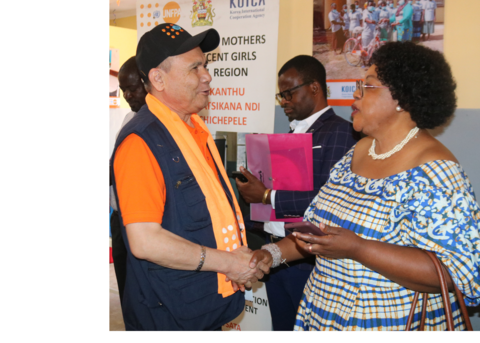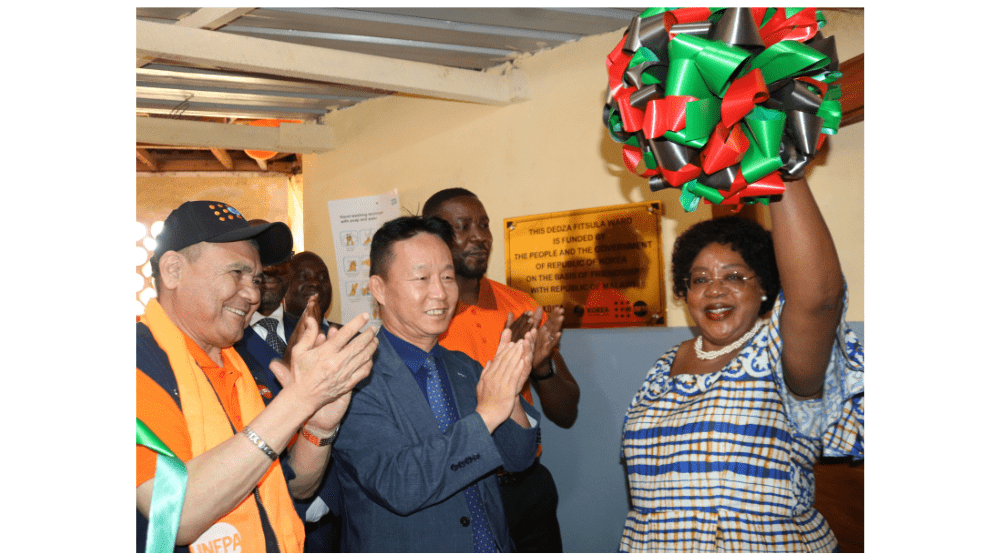DEDZA, Malawi - For too long, adolescent girls and teen mothers in Dedza have suffered in silence, battling the painful and stigmatizing effects of obstetric fistula. Today, hope is finally in sight as a new fistula ward opens, promising to transform lives and restore dignity.
In the past, those with the condition had to be referred to Bwaila Fistula Centre in Lilongwe, because there was no treatment facility in the district. UNFPA, the Sexual and Reproductive Health agency, through Action for Teen Mothers and Adolescent Girls project with funding from Korea International Cooperation Agency (KOICA) has supported Dedza district hospital with a new fistula ward.
“Launching the fistula ward will restore hope and dignity to survivors, helping them reconnect with their families and communities and contribute to the country's development," said Dr. Ezizgeldi Hellenov, UNFPA Malawi Deputy Representative during the official opening of the fistula ward.
It is estimated that between 2,000 and 3,000 new cases of obstetric fistula occur annually in Malawi, with thousands of women already living with the condition. Obstetric fistula results from prolonged, obstructed labourur without timely medical intervention, leading to the development of a hole between the birth canal and the bladder or rectum, causing involuntary leakage of urine or faeces.
In her remarks during the launch of the ward, the Director of Reproductive Health Department at the Ministry of Health, Ms. Doreen Ali, pointed out that over 161 cases involving adolescent girls from Dedza have been treated at Bwaila in Lilongwe in the past two years necessitating the need for the ward.
“Adolescent girls are central to the prevention of fistula. We cannot afford to leave them behind; they must be well cared for, treated and supported to ensure they experience safe motherhood,” explained Ms. Ali.

The fistula ward will also help the patients to regain their health and self-worth allowing them to reintegrate into their communities and participate fully in several activities.
Manshik Shin, KOICA Tanzania Country Director commended UNFPA for its work in the fight against fistula and affirmed support for adolescent girls and teen mothers through the Action for Teen Mothers and Adolescent Girls project.
He said, "KOICA will continue supporting adolescent girls and teen mothers to help them reach their full potential. It is for this reason that this fistula ward will not only improve the well-being of these girls and women but also address the sexual and reproductive health challenges they face.”
As part of the initiative, fistula survivors are also trained with skills such as sewing, which helps them earn a living and support themselves after treatment. In addition to empowering survivors with life skills, this ward will also play a key role in providing routine care for fistula patients, a treatable condition at both community and district levels.
“Fistula significantly contributes to high levels of school dropouts in Dedza. This has been a concern, as it limits adolescent girls' ability to actively participate in national development,” said Mr. Chris Tsalaniponi, Director of Administration at Dedza District Council while commending UNFPA and KOICA for their support.


